

Enjoying Life Through the Internet, Quality Resources from Around the World
Important Reminder
Dear Readers of Quality Internet Resources, have you noticed that it has become difficult to refresh our latest updates? This is due to changes in the WeChat public account recommendation mechanism! To avoid missing out on our prepared content, please be sure to star the “Quality Internet Resources” public account~

Note:
1. Our resources are all free, and the shared resources and software come from the internet. If any resource software prompts for various recharge methods, do not recharge, do not recharge, do not recharge, our focus is on open-source free resources!
2. Important things should be said three times.
Do not leave comments here; please reply with keywords in the public account chat box.
Do not leave comments here; please reply with keywords in the public account chat box.
Do not leave comments here; please reply with keywords in the public account chat box.

Recently, several friends have called to consult about weak WiFi signals in some areas of their homes, leading to slow internet on mobile devices like phones and tablets, which is frustrating. Today, I will share several methods for seamless coverage of home wireless WiFi.
-
Using Mesh Networking
When selecting a router, one important factor is whether the signal is strong enough to cover every corner of the home. For larger homes or multi-story buildings, a single router is often insufficient, as 5G signals have difficulty penetrating walls, making it hard to ensure good signals in every corner.

Before the advent and popularity of Mesh technology, we mainly used wireless repeaters to extend signal coverage. Compared to wireless repeaters, Mesh technology completely compensates for their shortcomings and can be considered the most ideal solution currently.
Mesh systems are integrated; adding Mesh nodes and modifying Mesh network settings is very simple. Modifying the main node information automatically syncs with other routers in the Mesh network, and new nodes do not require setting SSID, password, or upstream router information. Once connected, they will automatically sync and form a network. It can be easily completed with one click, making it user-friendly for parents and children alike.
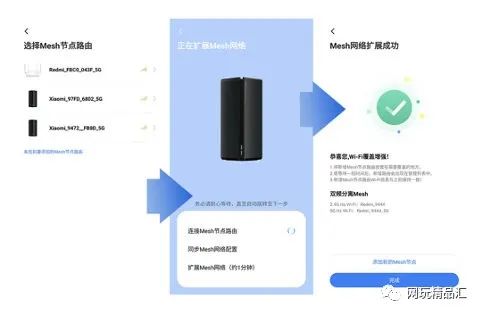
In contrast, wireless repeaters require configuring SSID and passwords one by one, selecting the networks to be repeated, making the process extremely cumbersome and high in barriers. Mesh systems automatically build the optimal network environment based on the number of nodes and network conditions. Depending on the layout and placement, they can automatically form star, chain, or daisy-chain networks, ensuring excellent signal coverage and high-speed networks for devices in any position.
Even if one node fails, the Mesh network will automatically re-establish the optimal network environment.This is something that wireless repeater modes cannot achieve; the topology of a wireless repeater network is fixed and defined by the user at the outset, and the entire network cannot guarantee optimal performance.If one device goes offline, it may cause all nodes after that to fail, rendering automatic recovery impossible.
Mesh systems can intelligently navigate and allow seamless roaming.
Mesh systems are integrated; they automatically guide devices to better node routers based on signal strength, network interference, and load conditions. The entire process allows for seamless roaming, enabling smooth gaming and video calls without lag.
In a wireless repeater system, the routers do not know each other’s statuses and cannot actively guide devices to connect to better nodes. They cannot achieve seamless roaming between multiple routers, leading to noticeable disconnections when switching from the main router to the repeater router, which affects online gaming and video experiences.
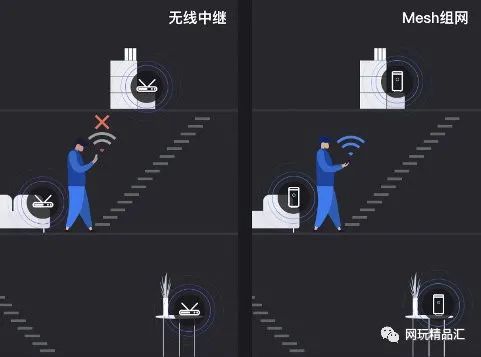
It is evident that the current solution for seamless home WiFi coverage is to use multiple mesh routers, but routers with mesh functionality are currently quite expensive and not cost-effective.
2. Using Old Routers for Connection
Mesh networking is a relatively recent technology, and previously many households had WiFi routers in every room. Switching WiFi manually when using mobile devices in different rooms was very cumbersome. Now, I will teach you how to use these old routers to set up home WiFi networks that achieve seamless WiFi roaming coverage similar to mesh networks.
Typically, home connections look like this with fiber broadband:
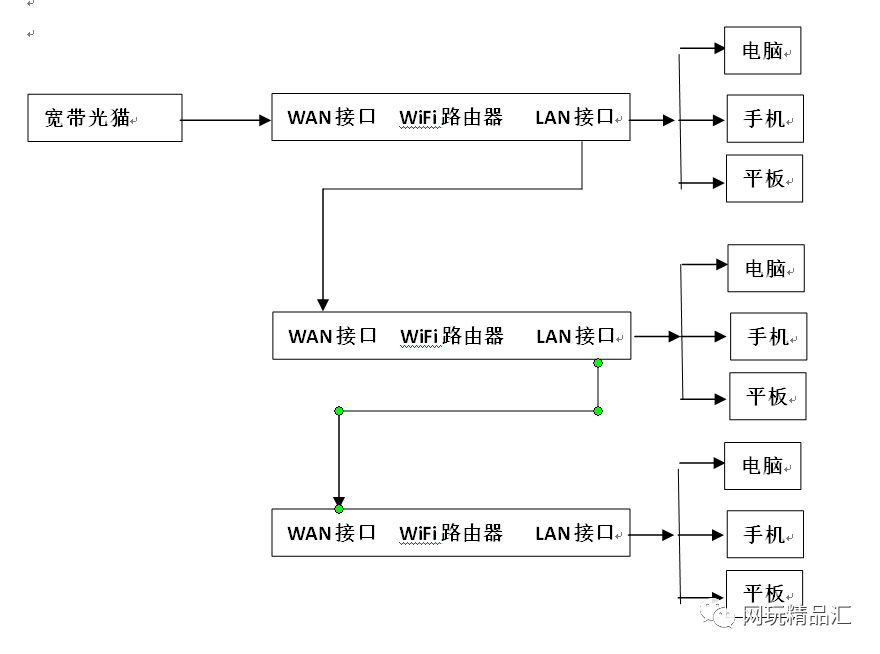
With the above connection method, all routers work in router mode, and each room has its own independent WiFi. Although there is no issue with WiFi weakening, switching between different WiFi networks is extremely inconvenient.
My solution is as follows:
Connection Diagram
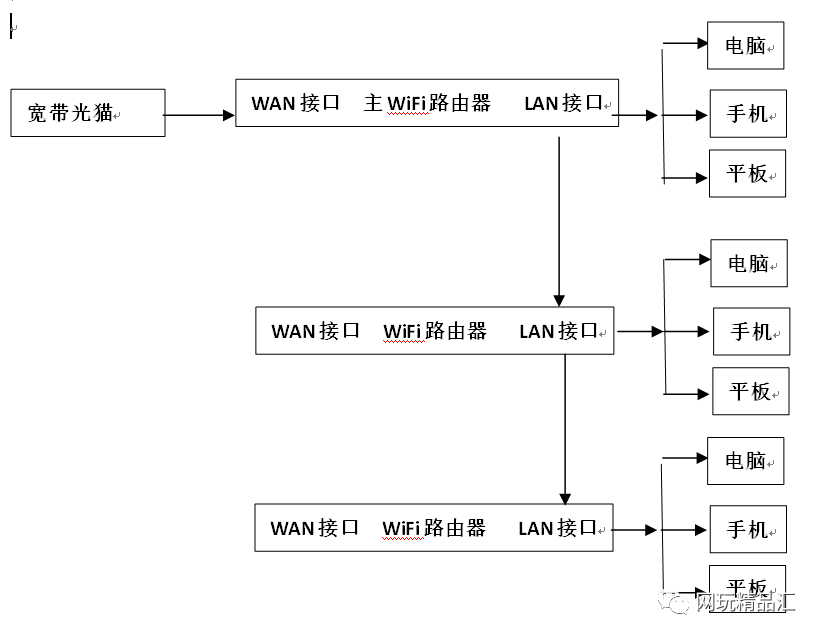
In the diagram, it is clear that except for the main router’s WAN port connected to the optical modem for internet access, all other routers are connected to the LAN port. The routers after the main router are no longer in router mode but in a bridging mode, so the settings are completely different from those of a router.
First, log into the backend router:
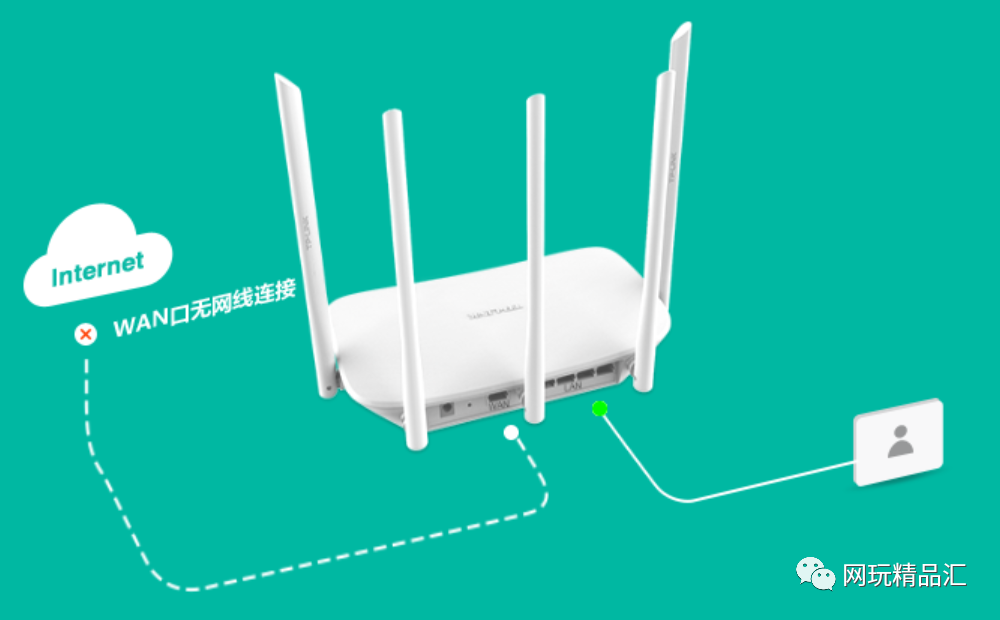
Ignore the WAN no network warning, change the IP address to be in the same domain as the main router. The IP of my main router is 192.168.2.1, so this router’s IP is set to: 192.168.2.253
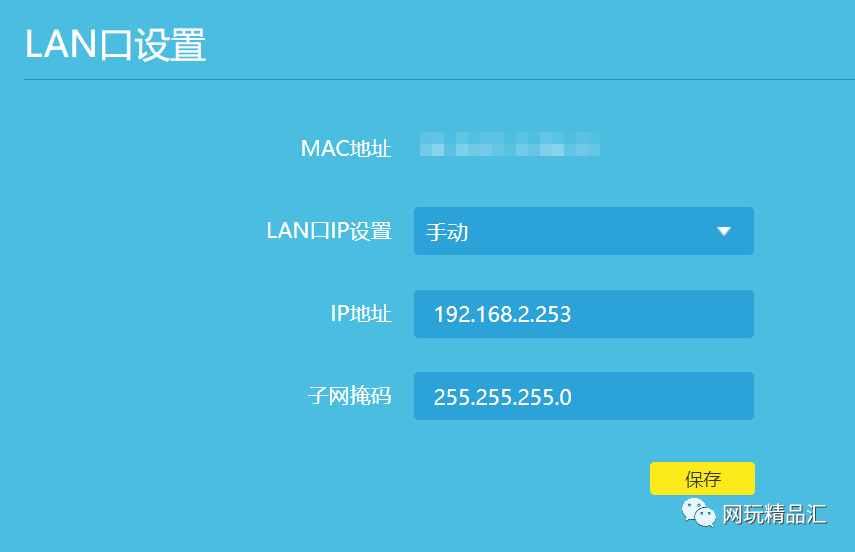
Then ensure the WiFi name and connection password are the same as the main router.
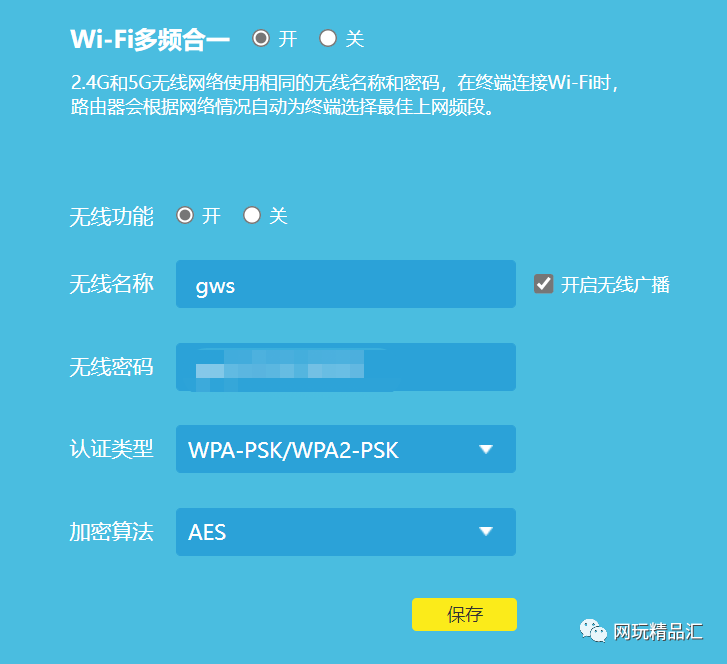
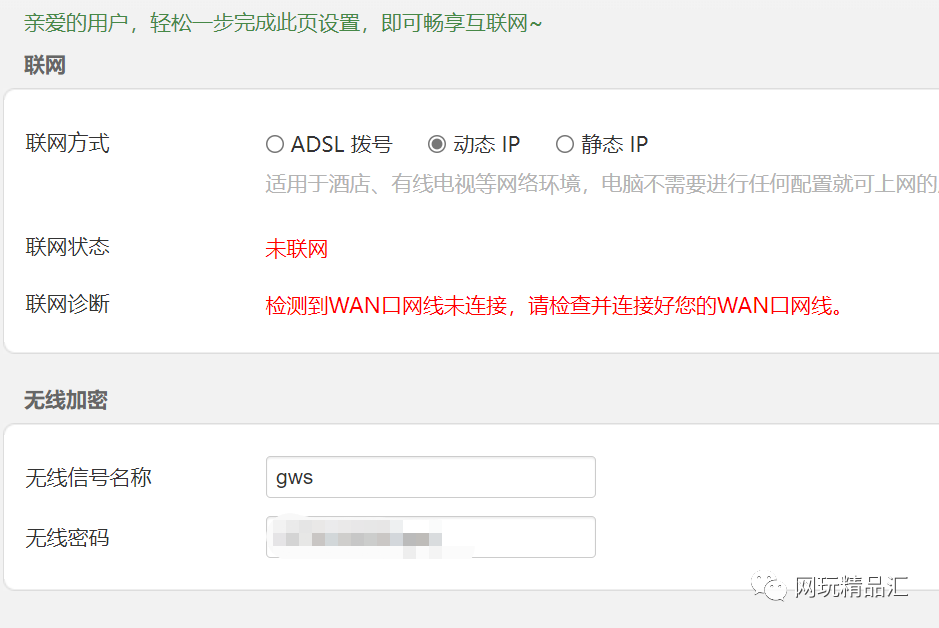
The second WiFi router after the main router has the IP 192.168.2.248, and DHCP service is turned off.

After completing the above settings, restart the router, and reconnect your phone, tablet, and laptop to the WiFi. No matter which room you are in, you won’t need to switch WiFi, and the signal will always be strong and smooth.
Conclusion:
Although purchasing mesh routers can achieve seamless coverage of home WiFi, they are quite expensive, with a single mesh router costing hundreds of yuan, and three routers for networking costing nearly a thousand yuan, which is not cost-effective. Utilizing existing routers for bridging not only eliminates many shortcomings of repeater routers but also retains the advantages of mesh networking, making it a very worthwhile recommendation. If you find this article useful, feel free to share it.
1. All resources provided by this public account come from the internet. Copyright disputes are not related to the public account, and all content and software articles are for learning and research purposes only. The above content must not be used for commercial or illegal purposes; otherwise, users will bear all consequences! If you like this program, please support genuine software by purchasing registration for better services! Software copyright belongs to the original author, enterprise, and original source.
2. This public account only provides a resource-sharing platform and will not bear legal responsibility for any resources. If we inadvertently infringe on your copyright interests, please send an email to [email protected] to notify us, and we will promptly delete and correct any infringing content upon receiving your email.
3. Unlocked resources have a certain time limit. If you encounter issues such as being unable to use it, being charged, or being asked to join groups during use, please do not believe it and delete the application decisively. You can visit this account for other applications as substitutes.
4. Installing cracked apps or software may trigger security warnings on some phones or computers, which is normal. If you are concerned, please do not install! These apps or software come from the internet; the article content is for reference only, and the software may not be compatible with every system. Please test the software yourself! If this article infringes on your legitimate rights, please contact the author with proof of ownership!
